For most, particularly those selling food or easy-to-tote wares, the fair is the ultimate seal of approval – it can make a Maine business. But for others, it’s a toss-up.
In recent weeks, Sue Sydnor has tested the limits of her minivan, driving from her home in Dayton to Springfield, Massachusetts, where she took possession of 900 pounds of organic peanuts from Virginia, and up to Albion to pick up 60 pounds of wildflower honey from Swan’s. The road trips were in honor of Sydnor’s upcoming debut – or rather, that of her homemade peanut butter – at the Common Ground Country Fair. And the work is hardly finished; between now and this Friday when the fair opens, she’ll be grinding up those 900 pounds of peanuts and mixing them, by hand (in 20-pound batches), with four pounds of Maine sea salt and all that honey, then loading them into approximately 1,000 14-ounce tubs for sale.
She believes that it will all be worth it.
“When you get into the Common Ground Fair, it is like the seal of approval,” Sydnor said. “This huge organic fair that everybody knows about; it is like getting into Whole Foods.”
Held every year since 1977, the Common Ground Fair is the place to be if you love watching border collies bossing around livestock, or have some incredible eggplants you think might be blue ribbon worthy or are hoping to pick up some seriously good seed garlic. But for vendors, from craftspeople to food entrepreneurs like Sydnor, with her family-owned and -operated company Above the Dam, the annual fair represents a unique chance to make it. It’s the Holy Grail of fairs. Get into the Common Ground, which it isn’t easy, work yourself to the bone selling to or feeding people – as many as 60,000 – for three straight days in Unity and you might have made not only the nut you need to get through the winter but the connections that can make your business boom in the coming years.
IF YOU CAN MAKE IT THERE
Many fledging businesses end up with local retail orders, which can lead to a national profiles in the future – like the young Maine company that ended up making tea towels for the national high-end chain Anthropologie and a deal with the popular website Food 52. Others get the kind of foothold that can lead to, say, opening a brick-and-mortar restaurant or storefront. A presence at the fair can set the stage for sales throughout the year.
“The fact that we do the fair is a selling point for other events, because it is such a big one,” said Bennett Collins, whose Harvest Moon Pizza has evolved from its first fair appearance into a regular catering gig using ingredients fresh from Collins’ leased farmland in Bremen run in tandem with a restaurant in downtown Waldoboro. “People think, if you can handle the volume there, you are going to be able to handle anything.”
April Boucher, the director of this year’s fair, said Common Ground maintains high standards for whom it admits, particularly around Maine goods and foods (Sydnor makes jams too, but she won’t be selling peanut butter and jelly at Common Ground; no refined white sugar products are welcome). Every vendor applies anew each year, until they’ve been for 10 consecutive years. “We ask a lot of in-depth questions,” Boucher said. “It is a destination for the local economy because folks know that we do that.”
But in a competitive marketplace and amid a slow economic recovery, the Common Ground can’t be a raging success for everyone. Ken Henderson, who makes earthenware pottery in the tradition he first learned at Old Sturbridge Village in the 1980s (it’s known as redware) decided after gloomy sales in recent years that Common Ground isn’t worth the trouble, not as a vendor anyway.
“This past one, it was record-breaking attendance,” Henderson said. “And I am standing there in the booth with the guy next to me going, ‘Look at these people; their hands are empty. They are not carrying any packages.'”
The Common Ground Country Fair started in Litchfield in 1977, with 10,000 attendees (organizers had expected 2,000.) No less than environmental guru Wendell Berry gave the keynote at the second fair in 1978. By 1981, the Common Ground was too big for Litchfield and moved to the Windsor Fairgrounds. In 1996, MOFGA purchased 200 acres of land in Unity, planning a permanent site for the organization and the fair. While it remained in Windsor, Henderson sold pottery like crazy.
“It was an incredibly profitable fair at that time,” Henderson said. “I used to rent a retail space in Damariscotta and I would have to go down and raid the shop on Saturday morning to get more stock.”
He says that up until 1997 he was making up to $8,000 a fair.
WAY UP COUNTRY
In 1998 MOFGA moved Common Ground to Unity. Despite the out of the way location, the number of fairgoers increased. In 2007, 62,000 visitors attended, bringing in $300,000 to support MOFGA. But whereas in Windsor, Henderson could run a big purchase out to someone’s car and be back in a few minutes, in Unity, where parking is far more spread out, he can’t do that. And many fairgoers aren’t willing to lug a big platter back to their car themselves, no matter how beautiful it is.
“Sure the folks from Liberty Graphics, they make good money because what does a T-shirt weigh?” Henderson said. But merchants with heavier objects, like some handmade apple ladders he’s been admiring, are out of luck. “Do you really want to carry an apple ladder out of there? I would love to get one but I go, ‘How am I doing to get it from here to the truck?'”
His sales dropped immediately in Unity, to about $5,000. “And we’re going ‘eesh,'” Henderson recalled.
“I am a folk artist,” he said. “But I don’t do it because I am a living treasure. I do it to make a living.”
The decline has been steady since. Last year, with 55,000 visitors to the fair, he said he made somewhere between $1,200 and $1,600 and had to pack up even those pig platters and harvest jugs proclaiming “Success to the Farmer” he’d made thinking the Common Ground crowd would love them. But the younger generation he’s seen at recent Common Ground fairs seem less interested in his kind of traditional pottery. “We have got the Ikea generation, and they don’t want a Windsor chair.”
Andy Leck, a blacksmith who sells his work under the name Scottish Lion, agreed that sales dropped after the fair left Windsor; the southern Maine attendees were more motivated to buy, he said. “We lost all those consumers when we moved way up country,” Leck said.
MORE BOOTHS, FEWER SALES
Increasing the number of booths at the permanent venue also had an impact, Leck said. “It kind of waters down the number of people buying. If there are four times more vendors, they spend the same amount.”
Patti Dowse, a coordinator for Maine Marketplace, one of the biggest areas for vendors, is aware of that. “I realized that if you double the number of exhibitors and don’t double the number of attendees, everybody takes in fewer dollars,” Dowse said. For 2014’s fair, she said, Common Ground has deliberately cut back on vendors. She also turned down vendors with duplicative products (for instance, many applied with tote bags in the same vein as Sea Bags this year, she said). But, she pointed out, it’s not about merchandise.
“The fair doesn’t mean to be a giant commercial thing,” she said. “It is really meant to be more about providing information and services.”
Henderson won’t be selling at the fair this year because of last year’s sales, but he doesn’t argue with that.
“Now having griped about this, you have to keep in mind that nowhere in the mission statement of the Common Ground Fair is there anything that I know about that says they are to promote local crafts,” he said.
And Leck says he believes most people, like him, are satisfied with sales. He works around the parking lot issue, offering to run his heavy sculptures out to the parking lot on a dolly, or delivering later for a fee. Then there are those who seek him out later, long after the fair ends, in his shop in Bristol. “Throughout the year I get at least 16 to 20 people who saw me at Common Ground Fair but didn’t buy and then stop by to shop,” he said.
That’s how it was for Peter Lovell of Little Wolf Copper & Lighting Inc., who specializes in making reproduction copper lights and made his Common Ground debut last year. Virtually everything he does is custom work and there’s little for sale under $200.
“I do not to expect to have walk-away business,” Lovell said. “I do not even try.” It’s about the future business for him, the people who take a card and then go home to take measurements and make an order. “I go to the show more for visibility,” he said. “We came out of there absolutely ecstatic because of the contacts we made.”
LIGHTWEIGHTS WIN
Two types of vendors are likely to have immediate success: those selling food to be consumed right then and there and those with the kind of wares you can stuff in a pocket or a purse, like jewelry or, say, the organic linen napkins and tea towels made by Christina Lannan’s Old Town-based company Madder Root. The linens feel like something your great-grandmother had but look like they were devised by a Brooklyn hipster with a well-thumbed subscription to Dwell magazine. They’re clean, modern looking and also cute, a tricky combination. And even the seconds, or especially the marked-down seconds, fly out of the fair at a rate of about 500 pieces a year. Last year she sold out of napkins and left the fair with just a few unsold towels.
“It’s definitely the biggest show we do,” she said. “Ten times bigger than any other show we do. It is a huge proportion of my yearly sales. It’s like half of what I make all year on Etsy.”
Lannan and her former business partner first applied to the Maine Marketplace area of Common Ground in 2010. They kept their expectations low. “We had heard how hard it was to get in,” Lannan said. Their business was so new they only had a few wholesale accounts. Then they got in.
The Madder Root linens were so popular that they’d leave the fair at the end of each day and go home to Old Town to make more product. “I was up until 4 o’clock in the morning, going, ‘what can I iron?'” Lannan remembered. “‘What can I pack?’ That was the only way we would have stuff to sell the next day.” One of her biggest contracts, with Conklin’s Maine Mercantile in Belfast, came about after the owner saw Madder Root at Common Ground, she said. Now she has 2.5 employees, including her husband (she bought her former partner out). A deal with Anthropologie last summer was flattering but for Lannan, keeping it local is her preference.
Her inspiration for the towels was entirely romantic; she always loved her grandmother’s tea towels, the kinds with the calendars on them. “I wanted to re-create them,” she said. It never occurred to her that making something so lightweight would be such a selling point for Common Ground buyers, but it makes sense. “They are not fragile,” she said. “You don’t have to worry about that.”
While Henderson lamented how devoid of packages the hands of fairgoers were last year, they were, he pointed out, “not empty of food.” It’s the ultimate portable purchase at the fair. There’s lamb kebab, piles of fresh potato chips still warm from the cooker and multiple opportunities to sample wood-oven fired pizza, including that of Bennett Collins’ Harvest Moon. His first fair was 2010, not long after he’d bought a portable oven from a breadmaker in Bowdoinham. He’d started farming but was, he said, trying to avoid the scenario of the “mythological small farmer who works all the time and never makes any money.” Pizza seemed like it would dovetail with what he was doing on the farm, ingredient and sensibility wise. The person he bought the oven from already had a spot reserved at the fair. “It was really a sweet deal,” Collins said. “We just walked into it.”
It’s intense making pizzas nonstop for three days, but Common Ground “is a pretty sure thing.” (This year Harvest Moon is shooting to sell 1,000 pizzas. Each pie is quartered and those slices sell for between $6 and $7.)
Common Ground begat more customers, and at many of the events Collins catered, customers would ask where his storefront was. “They always assumed we were based somewhere,” he said. “It was sort of an inevitability.” He was able to open Harvest Moon this spring in a stretch of Waldoboro that needed a shot of fresh energy. So far so good, he said.
“We’ll see how we weather the winter up here,” he said. “Summer is pretty easy. Even if you don’t set the world on fire, there is always adequate business.”
“I have encouraged other farmers to try to do a food booth there because I feel like it could be a really good anchor for other farms,” he said. Last year, he started selling seed garlic at Common Ground as well; unloading 300 pounds of it in three days.
On the other hand, Common Ground is not for the faint of heart. “I don’t think I slept much that first week,” Collins said.
Sydnor will be ready for that, with her 1,000 pounds of peanut butter. She’s been tutored by her friends at Casco Bay Butter Company on what to expect – exhaustion coupled with a serious opportunity.
“We are kind of just hoping for the best,” Sydnor said. But the Fryeburg Fair starts the next weekend, she pointed out. “In case it turns out to be something that people aren’t interested in, we’ll have lots of peanut butter to bring to the next fair.”
Copy the Story LinkSend questions/comments to the editors.


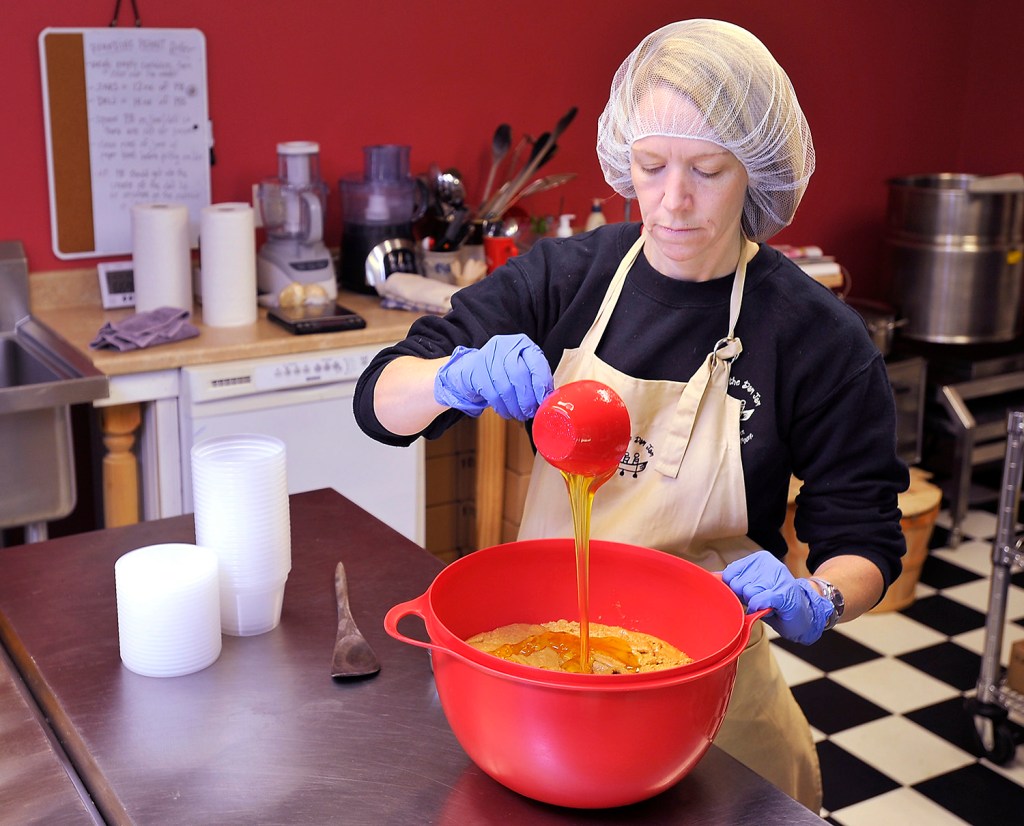
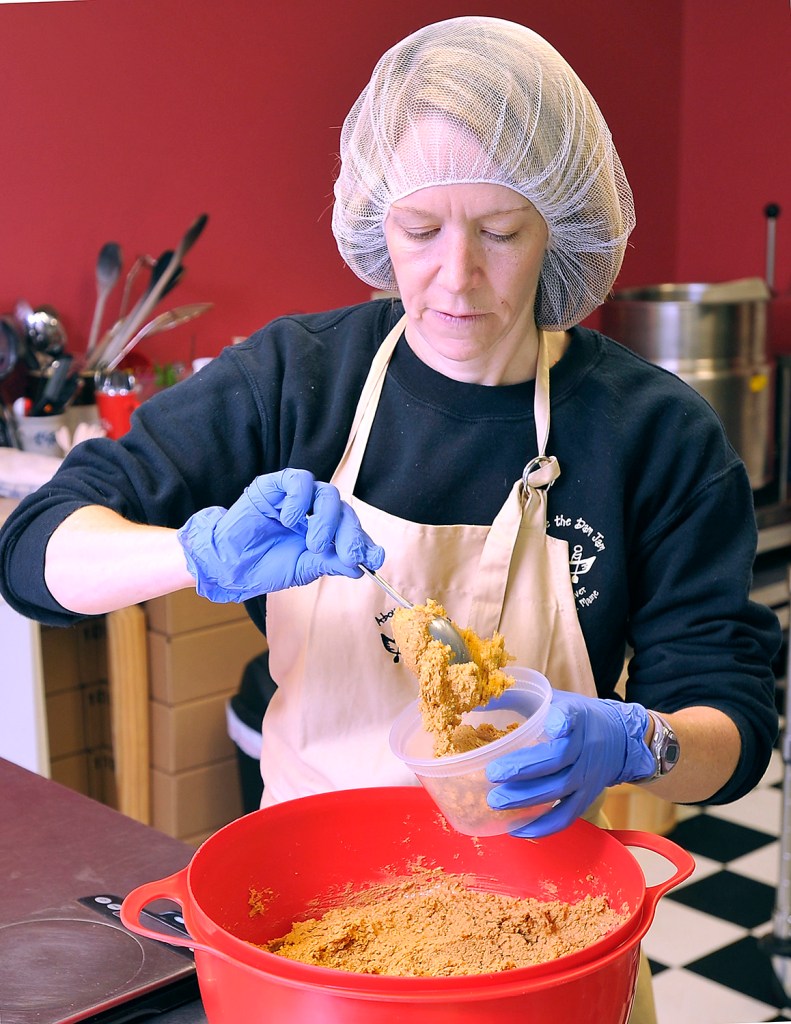
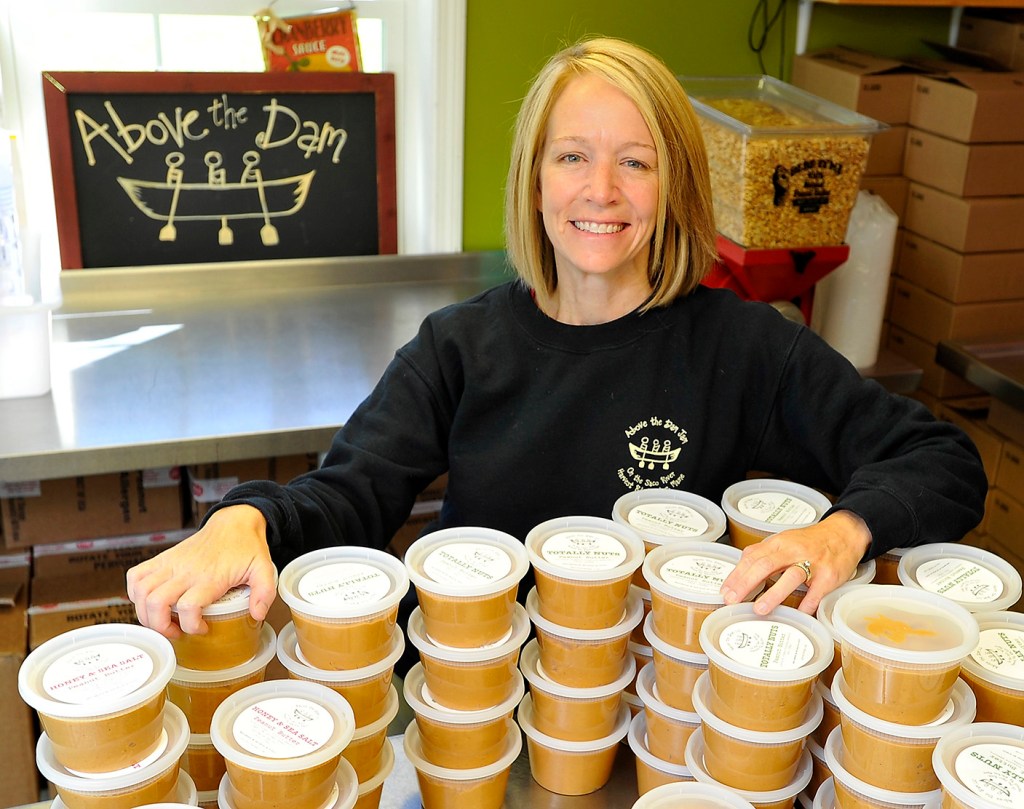
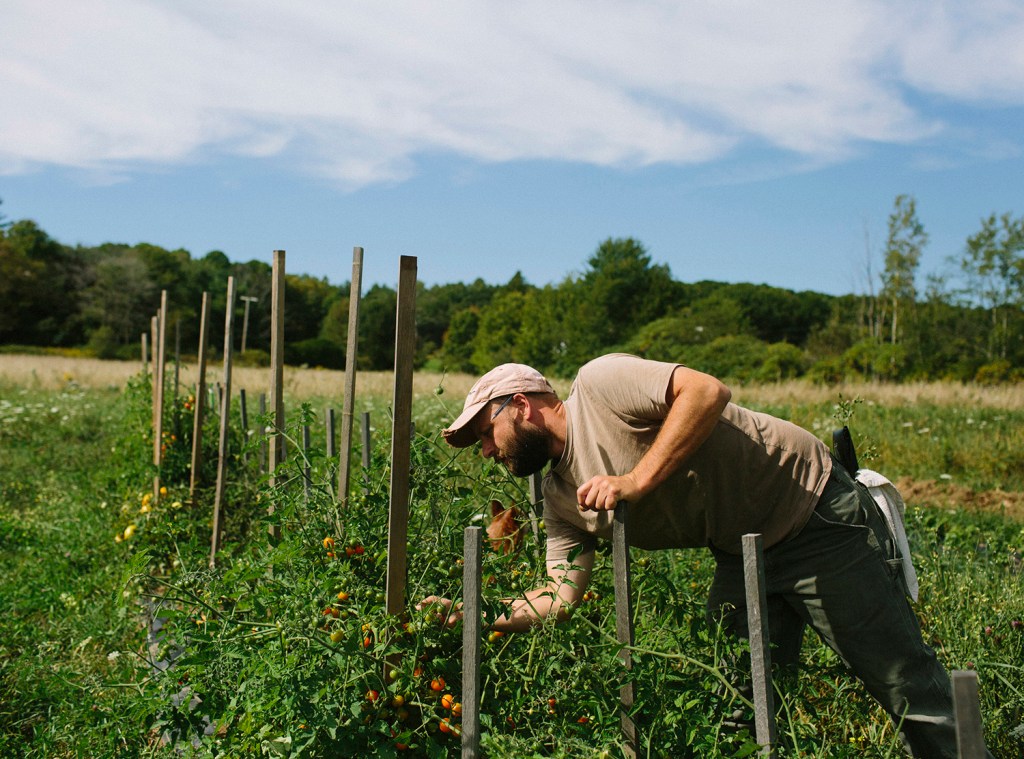
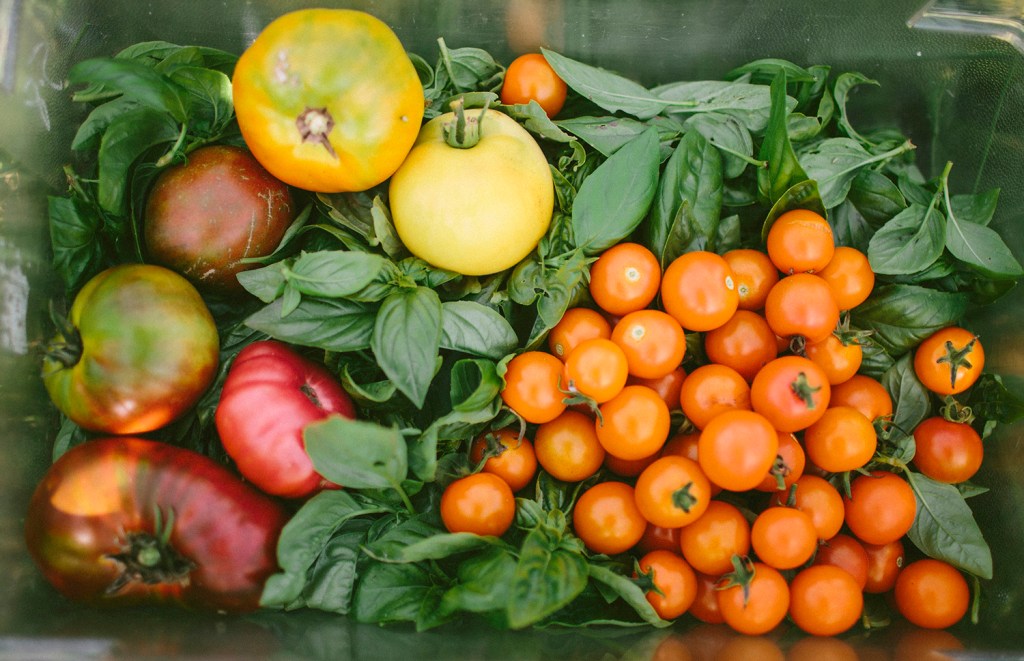
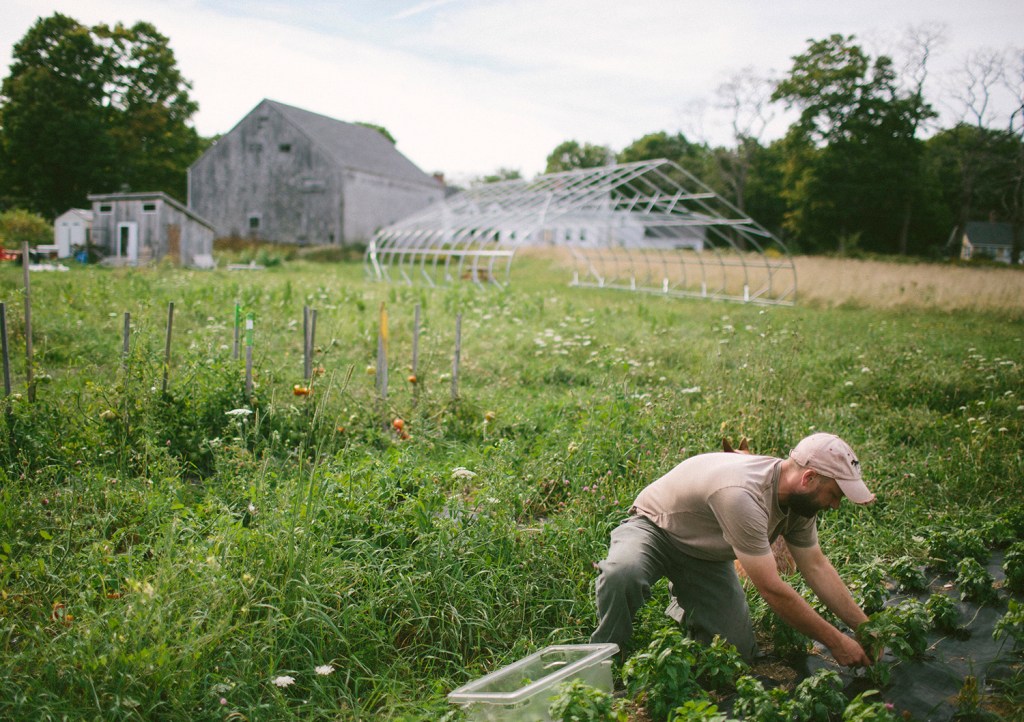

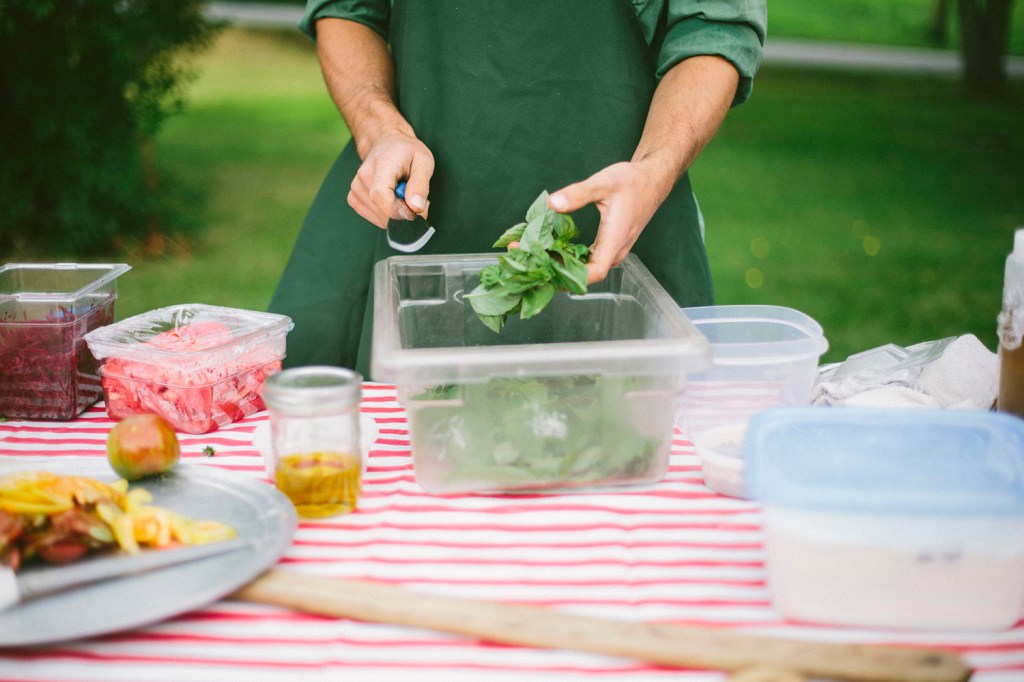
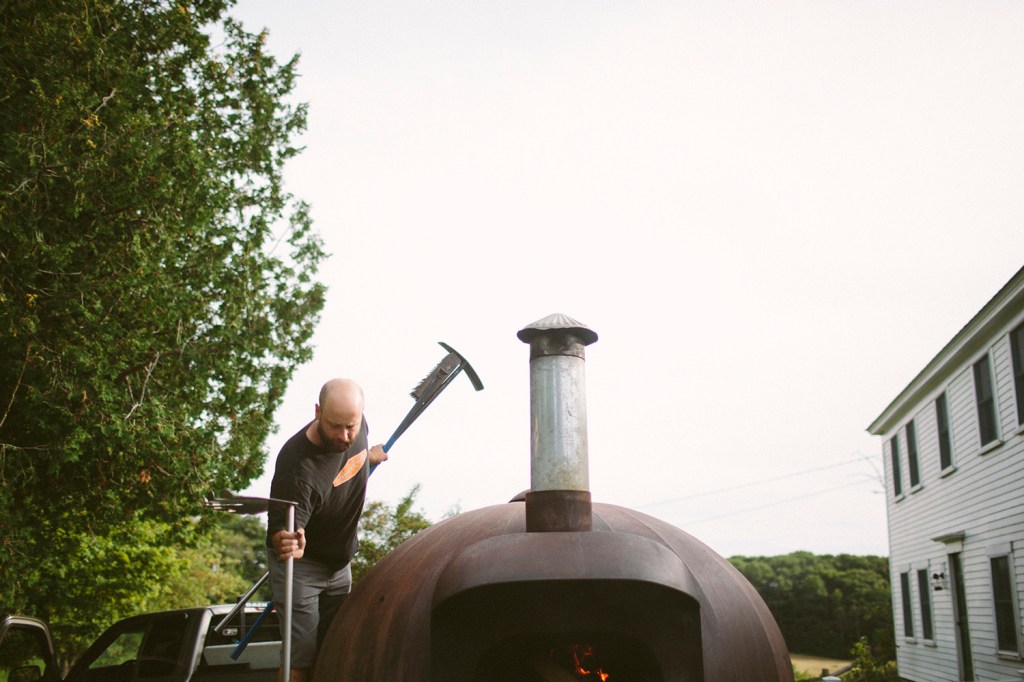

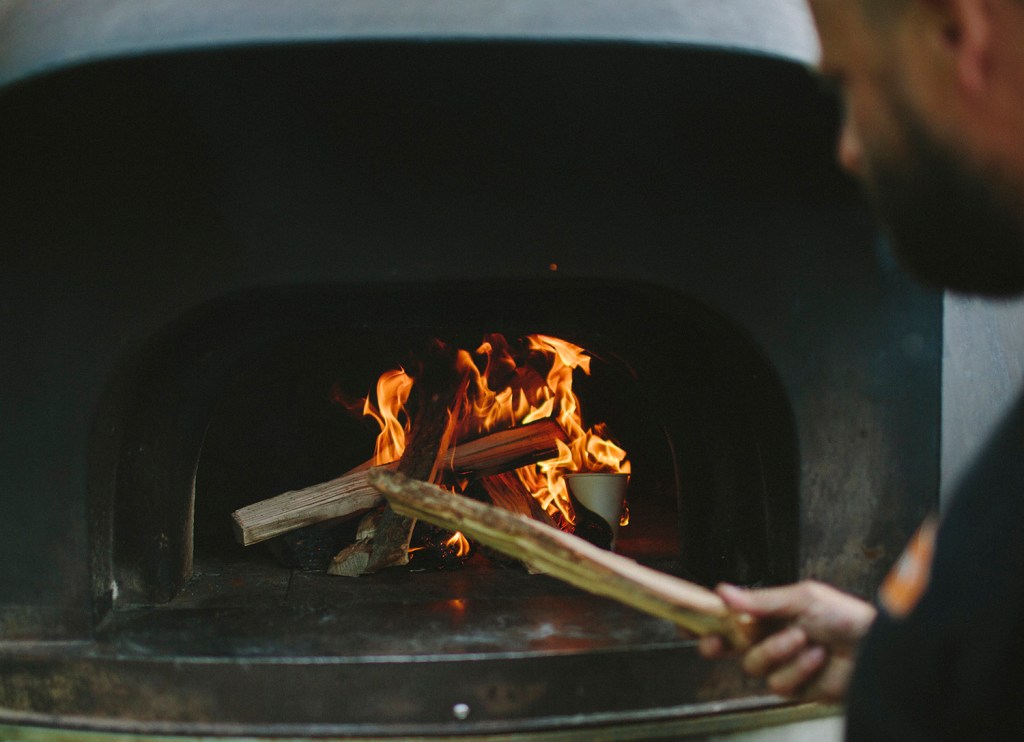
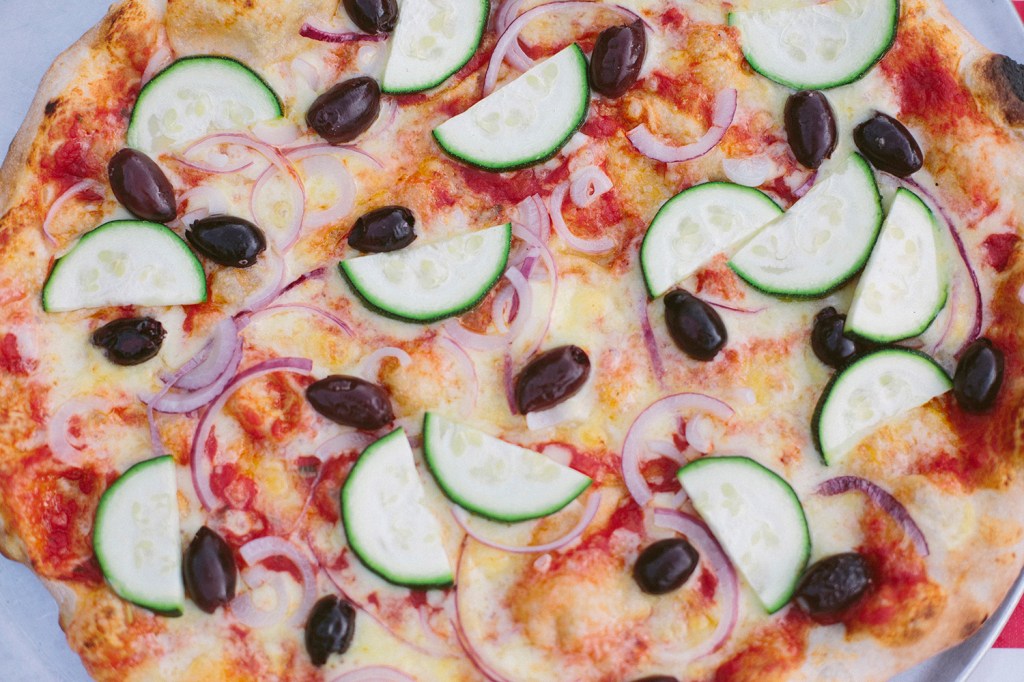
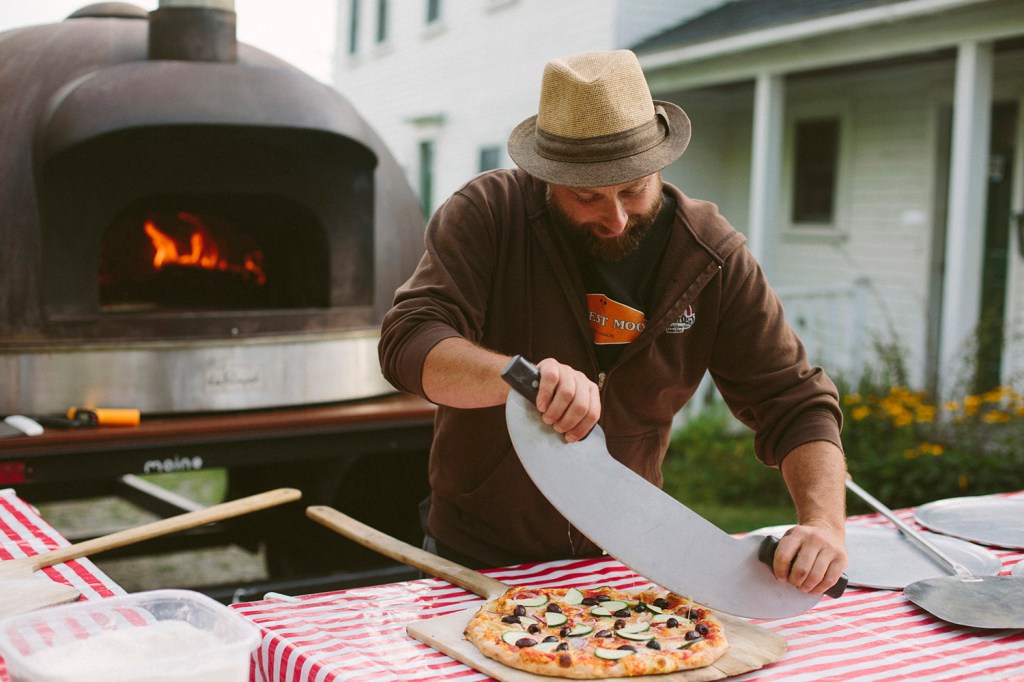
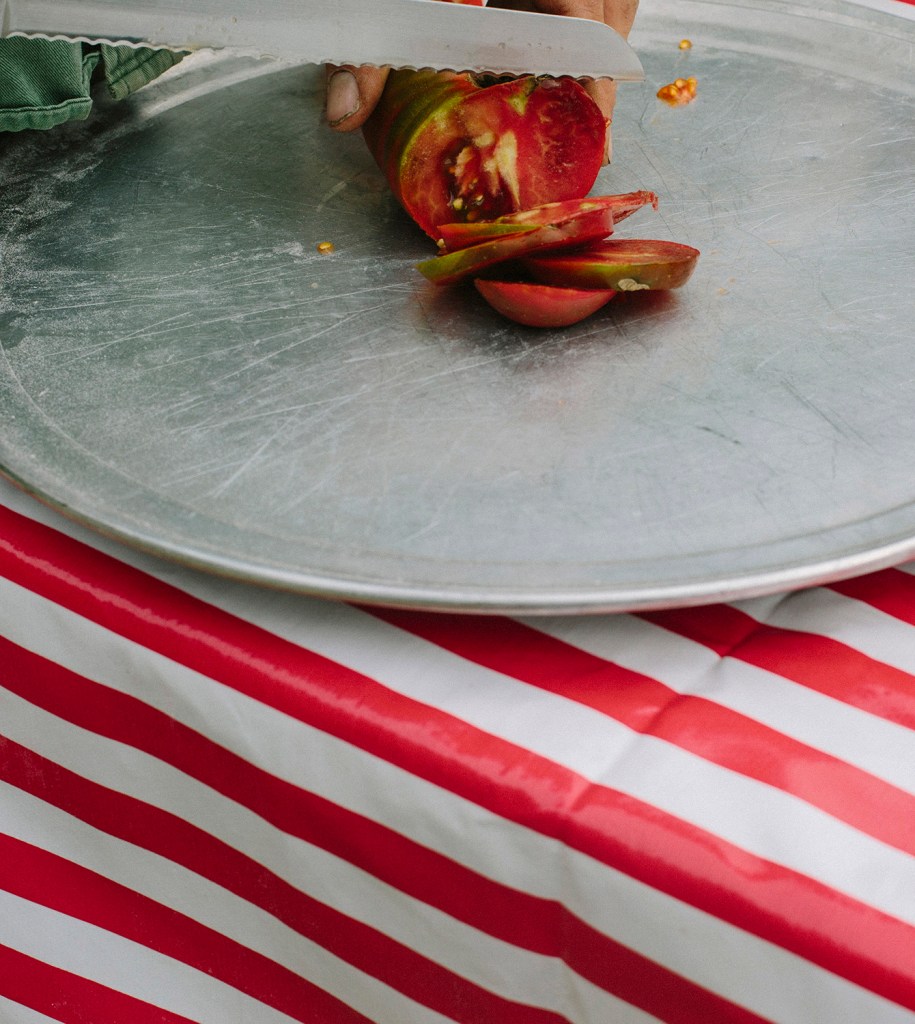
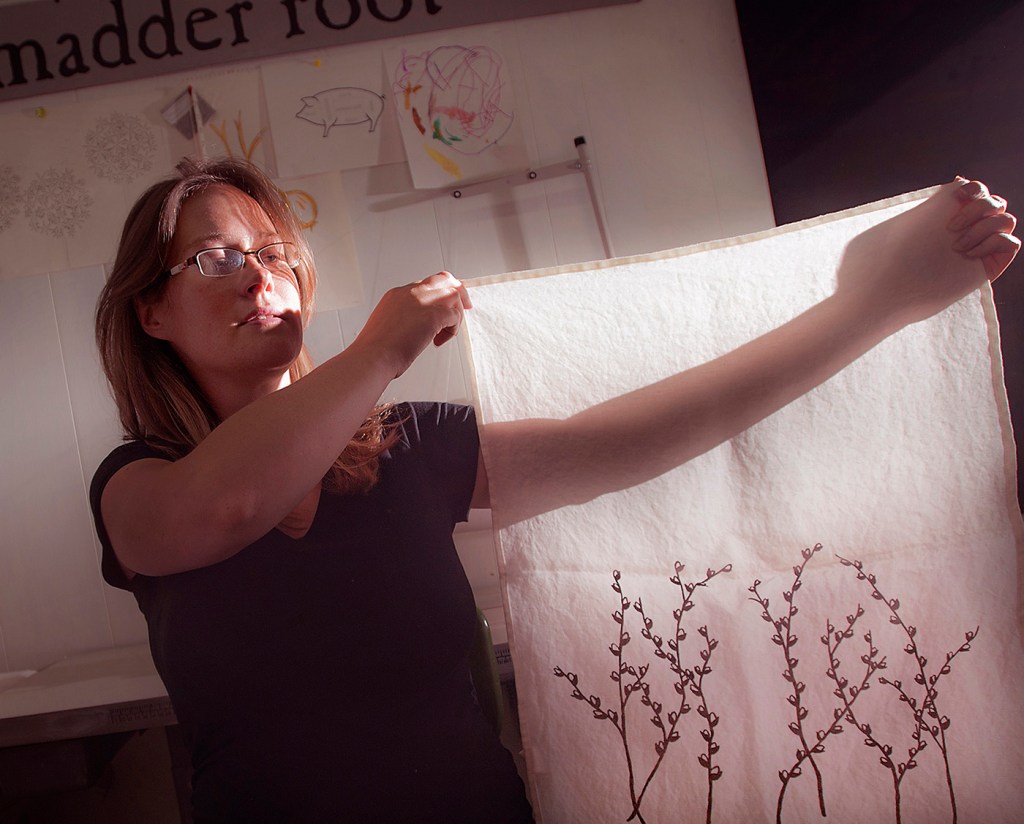
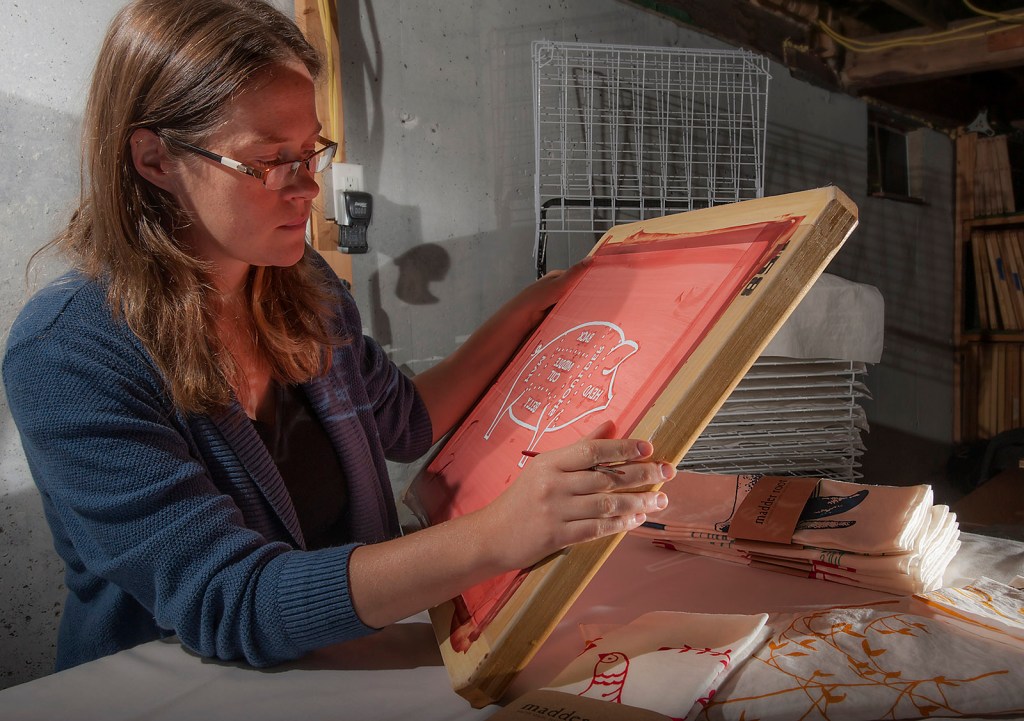
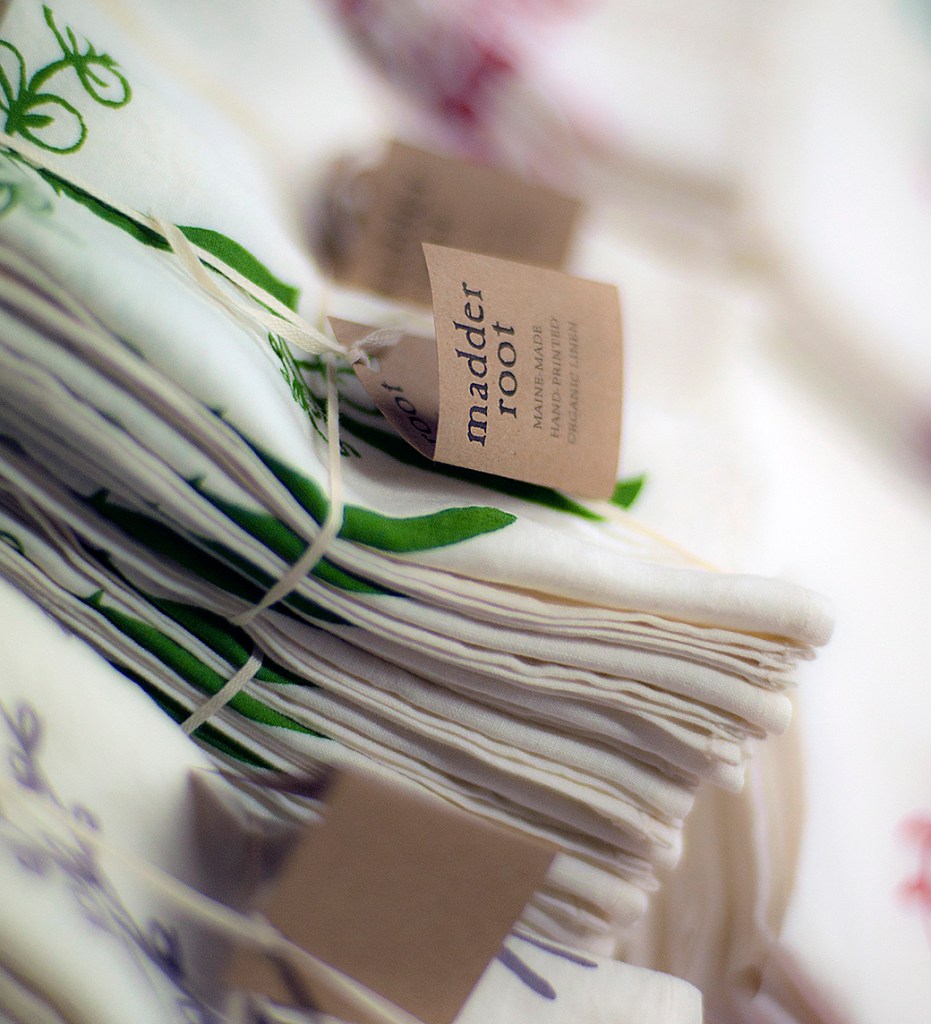


Success. Please wait for the page to reload. If the page does not reload within 5 seconds, please refresh the page.
Enter your email and password to access comments.
Hi, to comment on stories you must . This profile is in addition to your subscription and website login.
Already have a commenting profile? .
Invalid username/password.
Please check your email to confirm and complete your registration.
Only subscribers are eligible to post comments. Please subscribe or login first for digital access. Here’s why.
Use the form below to reset your password. When you've submitted your account email, we will send an email with a reset code.